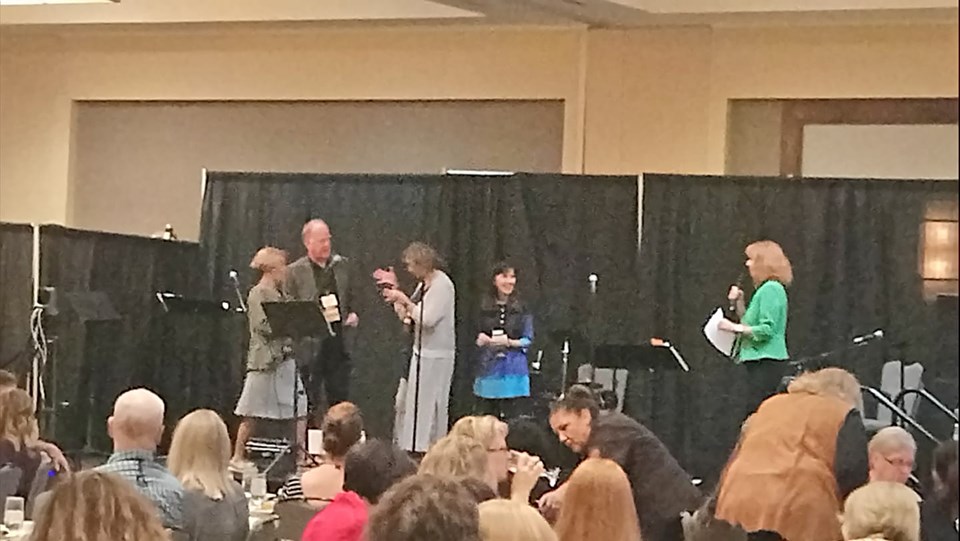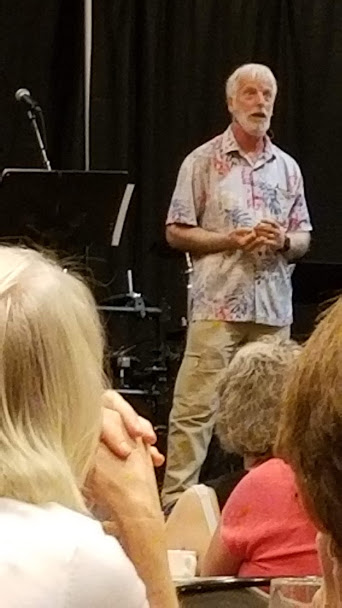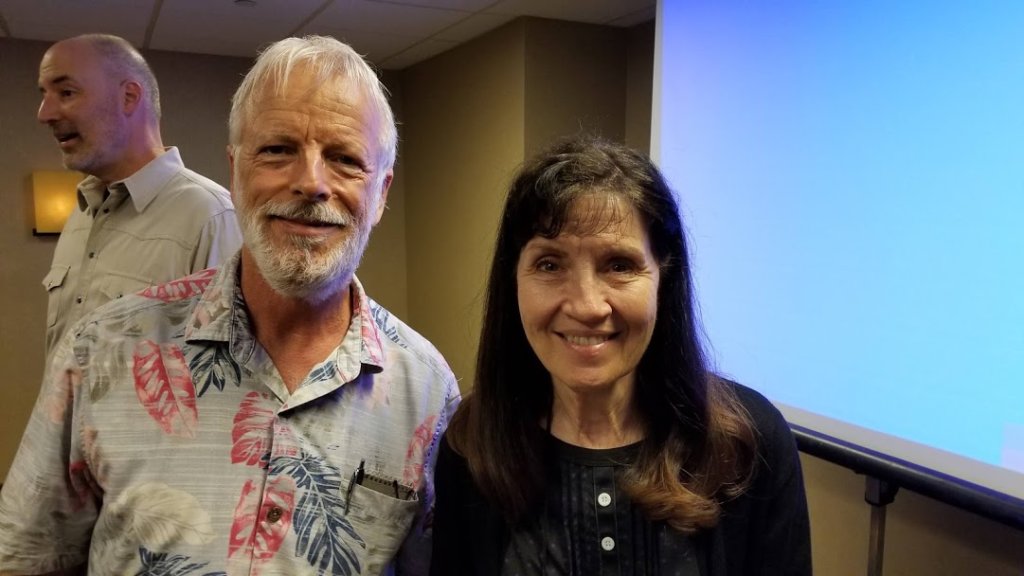
It has been a writer’s perfect week. I wish I had a word for it! A perfect storm (of which I’ve experienced many over the years) is a “particularly bad state of affairs, arising from a number of negative factors,” according to the dictionary. But this week was the opposite: a writer’s perfect week.
While I don’t believe a picture is worth a thousand words (or I wouldn’t be in this business), I love photos that tell stories too, so they’re sprinkled throughout.
Two Big Events
Two things made this such a great week: a national writers’ conference last weekend, and my research trip to England tomorrow!

I’m president of our local branch of ACFW (American Christian Fiction Writers), and this past week was our National ACFW conference. We met downtown at the Riverwalk. (That is a view from my room.) As host city, we were responsible for a few things, like transportation for VIPs. (Thank you again, Bruce Judisch!)

On Thursday night I was surprised before the dinner by receiving a “Milestone Pin” for having had more than 50 books published with traditional publishers. My friend’s photo caught us as we left the stage.
Incredible Speakers

The speakers this year were superb, and it was an honor to sit under the teaching of authors I had admired and read for decades. They were all so generous with their time and “secrets of the trade.” One special time for me was meeting Frank Peretti, author of two books I read in the 80s (This Present Darkness and Piercing the Darkness) that made a huge impact on me (as well as the other 3.5 million people who bought the books.) He was hilarious and  deep, a rare combination, and such a kind man. He was our keynote speaker for the weekend, plus he shared in workshops, and I came as close to being a groupie fangirl as I have ever come in my life.
deep, a rare combination, and such a kind man. He was our keynote speaker for the weekend, plus he shared in workshops, and I came as close to being a groupie fangirl as I have ever come in my life.
Other speakers who were favorites were Allen Arnold, James Scott Bell, Robert Dugoni, and Susie May Warren. They all shared deeply moving stories about their lives as well as teaching on writing.
One especially encouraging thing happened with the pitches for my new series idea set in the Yorkshire Dales in England. The agent I spoke with, and both editors I “pitched” the idea to, were very interested and want to see it. I am so grateful for this encouraging “shot in the arm.” It doesn’t mean a sale, but it’s the next step in that direction.
Perfect Timing

So, I head back to England tomorrow, to a small flat in Settle, England, to work hard on Book 1 and finish research for Books 2 and 3. My head is practically bursting with ideas after sitting in 16-18 hours of excellent teaching. My next three weeks will be filled with writing, reading, museum visits, talking to the sheep on my hikes…and then starting the cycle over again. I can’t wait! I’ll post some photos and news throughout the time I’ll be there.
And if anyone knows a word for the opposite of “a perfect storm,” let me know!






